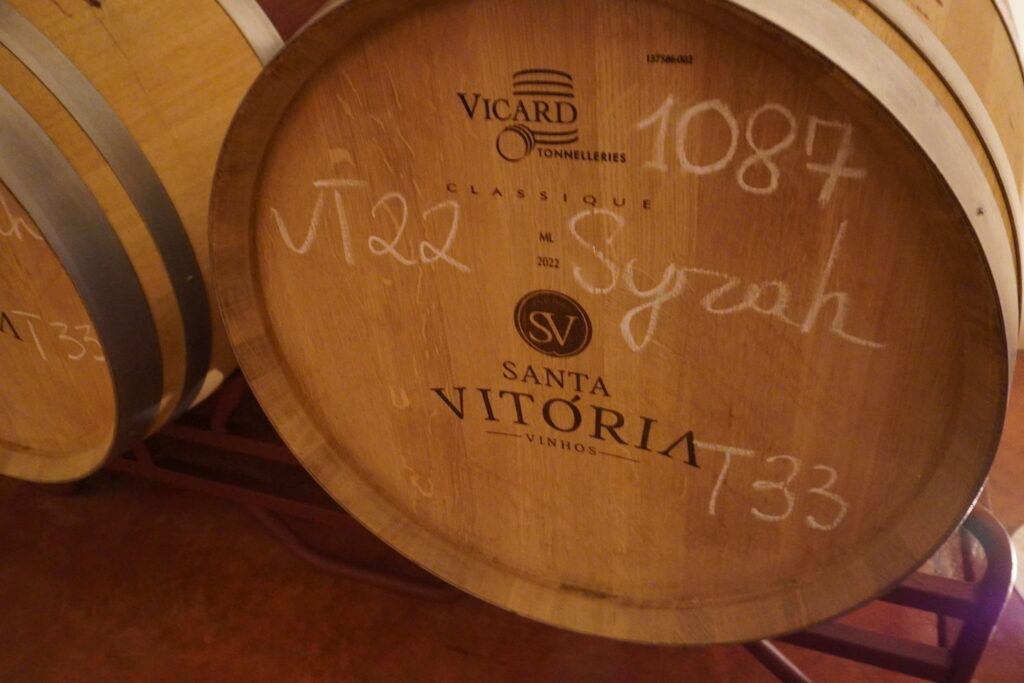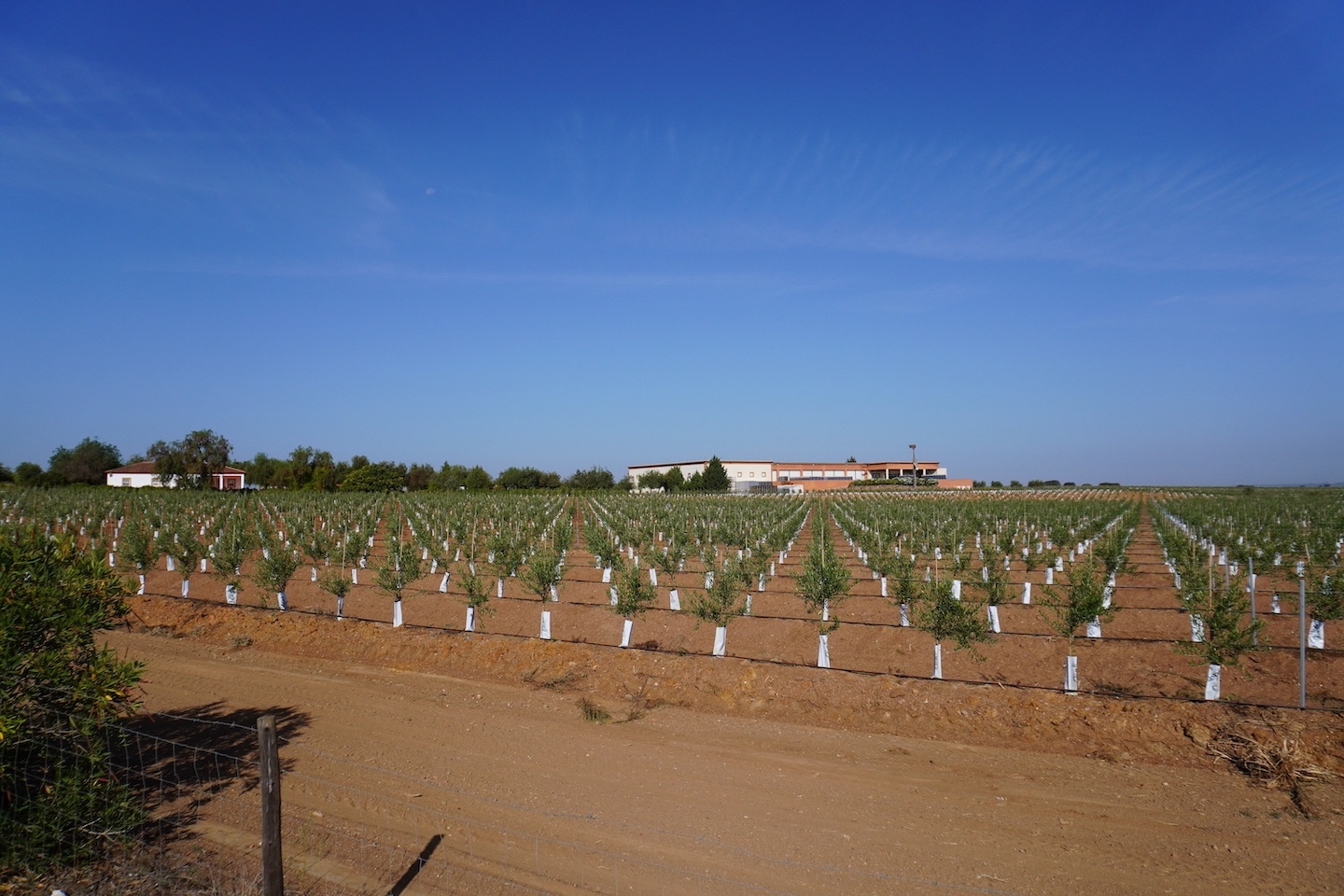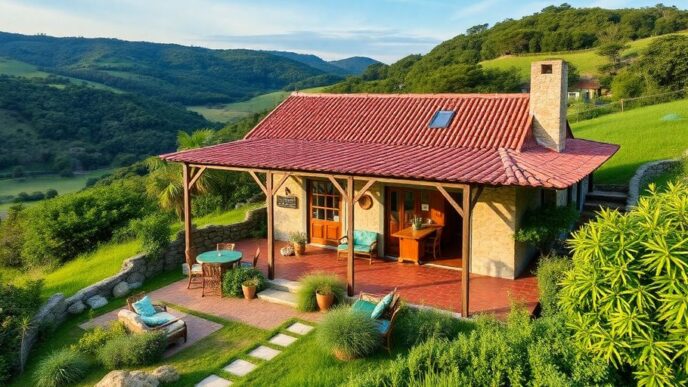Portugal’s Alentejo region, with its sweeping plains, medieval towns, and timeworn traditions, is often overshadowed by the country’s bustling cities and beach-laden Algarve coast. However, for travelers looking to experience authentic Portuguese culture, cuisine, and landscape, Alentejo stands as an unspoiled paradise where the past and present blend seamlessly. Located less than an hour from Lisbon, or two, if you keep driving to the likes of Castro Verde, this lesser-known region is Portugal’s answer to Tuscany, but with fewer tourists, richer flavors, and a profound sense of tranquility.
Rolling Hills, Vineyards, and Ancient Villages
Alentejo’s landscape is defined by rolling hills dotted with cork oaks and olive trees, sprawling vineyards, and whitewashed villages that seem untouched by time. The vineyards here produce some of Portugal’s finest wines, with rich reds and crisp whites that pair perfectly with the hearty local cuisine. Visiting wineries around the towns of Évora and Reguengos de Monsaraz allows you to sample award-winning wines and learn about the region’s age-old winemaking traditions.
The medieval town of Évora, a UNESCO World Heritage site, is a highlight of any visit. Known for its Roman ruins, Gothic cathedral, and beautifully preserved architecture, Évora offers a glimpse into Portugal’s storied past. Stroll through its cobblestone streets, visit the famous Chapel of Bones, and enjoy the local pace of life.

Culinary Treasures and Tradition
In Alentejo, food is a point of pride and tradition. This is the birthplace of many iconic Portuguese dishes, including açorda (a comforting bread soup with garlic, coriander, and poached eggs) and migas (a delicious combination of pork, bread, and herbs). Locally sourced ingredients—fresh herbs, olive oil, cured meats, and cheeses—are key to the Alentejo’s rustic but flavorful cuisine.
One of the region’s greatest pleasures is dining in small, family-run tavernas and experiencing genuine Alentejano hospitality. Here, you’ll often be served hearty portions by hosts eager to share stories of their homeland. It’s in these cozy settings that you can taste traditional dishes made using recipes passed down through generations.

Slow Travel and Authentic Experiences
Alentejo is best explored at a leisurely pace, giving you time to uncover the area’s charm without the rush of typical tourist spots. From horseback riding through vineyards to taking a hot air balloon ride over the vast plains, there’s a strong emphasis on sustainable, slow travel. For those interested in outdoor activities, the Alqueva Lake, Europe’s largest man-made lake, offers opportunities for kayaking, stargazing, and picnicking by its serene shores.
The region also offers unique cultural experiences. Craftsmen keep traditional skills alive, such as pottery in São Pedro do Corval and hand-painted tiles (azulejos), giving travelers the chance to bring a piece of Alentejo’s heritage home. This is a place where life follows the rhythm of the seasons, and visitors are encouraged to take in the sights and sounds mindfully, fully immersed in the local way of life.
Where to Stay: Boutique Hotels and Rustic Retreats
Accommodation options in Alentejo range from boutique hotels in renovated palaces to countryside retreats surrounded by vineyards. Many lodgings offer an intimate connection with nature, including eco-resorts and rural bed-and-breakfasts, giving visitors a tranquil escape from the usual crowds. Staying in the region’s converted farmhouses or manor houses allows travelers to experience both luxury and rustic simplicity.

One of our favourites is the Vila Gale Santa Alentejo Vineyards resort near Beja. This is a resort hotel, with pleasant rooms and suites, but attached, within walking distance to the huge Santa Vitoria vineyard. Vila Gale have another, young-family focussed hotel nearby, but the Santa Vitoria linked hotel is ideal for a romantic break or for solo or group travel by those who want to experience a friendly, working vineyard with tastings and tours.
For those looking for a truly immersive stay, the Herdade dos Grous offers a luxurious escape on a sprawling estate that combines vineyards, olive groves, and even a horse-riding school. Alternatively, the charming São Lourenço do Barrocal, a meticulously restored 200-year-old farming village, provides modern comforts in an authentic, pastoral setting.
A Journey Into the Heart of Portugal
Alentejo may lack the glamor of Lisbon or Porto, but it captures the essence of Portugal in a way few other regions can. From medieval towns to sweeping landscapes and culinary delights, this is a region that begs to be savored slowly, letting you connect deeply with its people, history, and rhythms. For those willing to take the road less traveled, Alentejo offers a rich tapestry of experiences and a window into Portugal’s soul.













